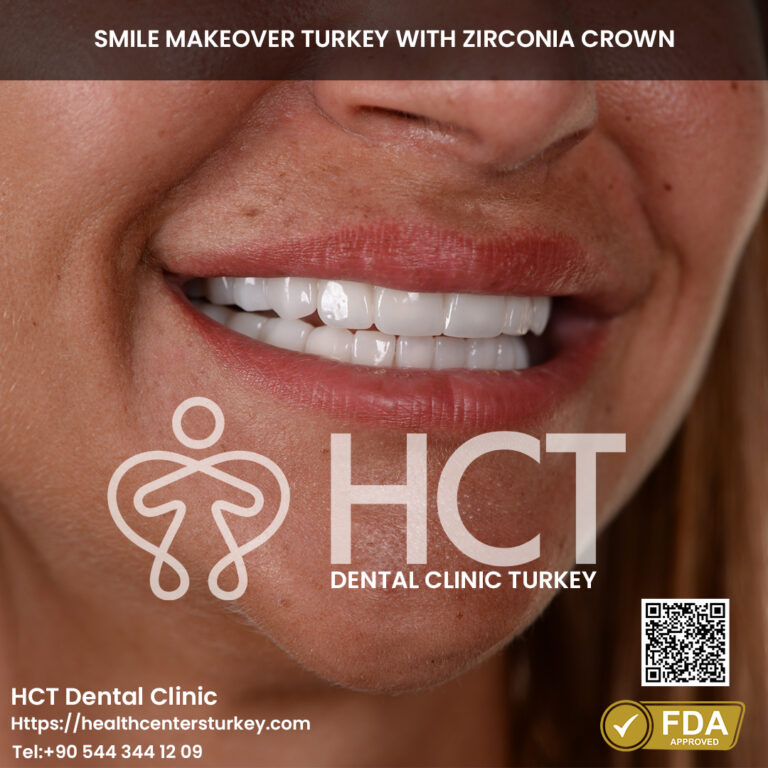Comprehensive Cosmetic Solutions offered in Turkey for a Beautiful Smile
Dental implants have turn into a preferred solution for those trying to replace missing teeth. Understanding how these implants can have an effect on adjacent teeth is crucial for anybody contemplating this process, in addition to for dentists and specialists involved in dental care.

One significant side is that dental implants are designed to be anchored into the jawbone, which suggests they are impartial of adjacent teeth. Unlike dental bridges, which frequently require the alteration of neighboring teeth, implants can fill the hole with out compromising the health or structure of those surrounding teeth.
This independence helps preserve the integrity of adjacent teeth. When a tooth is lost, there can be a natural tendency for neighboring teeth to tilt or shift into the empty area. Such movement can result in misalignment, which can have an result on bite and total oral health. By placing an implant, you successfully prevent this potential shift, promoting higher alignment in the long term.
Rejuvenate Your Smile with Cutting-Edge Dental Treatments in Turkey
Additionally, dental implants help maintain bone density within the jaw. A natural tooth root provides stimulation to the encompassing bone, keeping it wholesome and strong. When a tooth is missing, the bone can start to deteriorate as a result of lack of stimulation. With a dental implant mimicking a natural root, bone loss may be minimized, which indirectly advantages adjacent teeth by preserving the general structure of the dental arch.
While dental implants are advantageous, improper placement can influence neighboring teeth. If an implant is positioned too shut to another tooth, it may exert undue pressure on that tooth, leading to discomfort or potential harm. Proper planning and imaging techniques are important for avoiding such issues.
Best Practices for Selecting a Dental Clinic in Antalya
Moreover, maintaining good oral hygiene is essential after receiving an implant. If not properly cleaned, surrounding teeth might turn into susceptible to dental points such as decay or gum disease. This underscores the importance of diligent oral care following the process to ensure both implants and adjacent teeth stay healthy.
Regular dental check-ups are additionally vital for monitoring the health of surrounding teeth. Dentists can identify any shifts or potential problems early, permitting for well timed interventions. This proactive approach ensures that both the implant and adjacent teeth can coexist with out complications.
Complete Dental Services for A Radiant Smile
Another consideration is the influence of implants on chew force. When a single tooth is missing, the load of chewing could shift to adjacent teeth, potentially resulting in put on or strain. Implants restore proper chunk dynamics by redistributing forces within the mouth, which can shield surrounding teeth from undue stress.
Some sufferers could raise considerations in regards to the appearance of dental implants. Well-placed implants can mix seamlessly with existing teeth, enhancing general aesthetics. In distinction, failing to replace a missing tooth can lead to aesthetic issues, including collapsing of facial structure and modifications in smile dynamics.
It's additionally worth discussing the psychological aspects of dental health. Experiencing tooth loss can adversely affect one’s vanity and willingness to have interaction socially. By restoring your smile with implants, you'll be able to positively influence not only your oral health but in addition your emotional well-being.
Long-term success of dental implants usually hinges on varied components, together with the affected person's health, maintenance habits, and the quality of the initial procedure. If adjacent teeth are healthy and properly cared for, the chances are they'll continue to thrive alongside the implants.
Tailored Treatment Approaches to Meet Your Needs
In conclusion, dental implants play an important position in not simply restoring particular person smiles, but in preserving the health and structure of adjacent teeth. By preventing shifting, maintaining bone density, and redistributing bite forces, implants can make certain that surrounding teeth stay in optimal condition. Proper placement, hygiene, and regular dental visits can further enhance the benefits of dental implants, leading to a more healthy, extra assured smile for years to come back.
- Dental implants may help preserve the alignment of adjacent teeth by offering a steady anchor, stopping adjacent teeth from shifting into the hole left by a missing tooth.
- The presence of an implant might stimulate bone progress in the jaw, helping to preserve the overall structure and integrity of the adjacent teeth.
- Unlike traditional bridges, implants do not require alteration of surrounding teeth, thus preserving their energy and anatomy.
- Implants can improve the distribution of chunk forces evenly throughout the dental arch, decreasing the stress on neighboring teeth during chewing.
- A well-integrated dental implant can lower the chance of bone loss within the space surrounding adjacent teeth, contributing to their long-term health and stability.
- The aesthetics of adjacent teeth could be improved because of the help provided by implants, which can result in higher general cosmetic outcomes.
- With proper placement, dental implants can prevent gum recession round adjacent teeth by sustaining adequate dental architecture.
- Implants may help mitigate the risks of periodontal disease in close by teeth by promoting healthy gum tissue and offering a washable surface.
- Long-term success of dental implants can lead to improved oral hygiene routines, which in flip advantages the health of surrounding teeth.
- The improved functional ability of an implant can encourage sufferers to chew extra effectively, thus increasing saliva manufacturing and aiding within the protection of adjacent dental tissues.undefinedHow do dental implants affect adjacent teeth?
What are dental implants and how do they work click for more info together with adjacent teeth?undefinedDental implants are synthetic tooth roots which may be surgically placed into the jawbone. They provide a steady basis for replacement teeth while guaranteeing minimal disruption to adjacent teeth, preserving their integrity and alignment. Enhancing Patient Experience in Turkish Dental Clinics.
Discover the Newest Dental Technologies Available in Turkey
Can dental implants trigger problems for nearby natural teeth?undefinedGenerally, dental implants do not hurt adjacent natural teeth. However, if the implant isn't placed accurately or if there’s inadequate oral hygiene, it may result in complications corresponding to adjacent tooth decay or gum disease.

Will getting a dental implant change the way my adjacent teeth feel?undefinedMost patients report no change in the sensation of adjacent teeth after implant placement. However, it could take a while to regulate to the presence of the implant, much like how one could adapt to other dental restorations.
Can dental implants help preserve the health of adjacent teeth?undefinedYes, dental implants may help preserve the health of adjacent teeth by stopping bone loss that can occur after tooth loss. This preservation helps the alignment of close by teeth, lowering the danger of shifting or misalignment.
Cosmetic Procedures Available in Beautiful Turkey
Do I need to modify adjacent teeth when getting an implant?undefinedTypically, adjacent teeth don't want alteration when putting an implant. This is probably certainly one of the benefits of dental implants over traditional bridges, which regularly require reshaping more info here adjacent teeth for assist.
How does the healing process of an implant have an result on close by teeth?undefinedThe healing process entails osseointegration, where the implant fuses with the jawbone. During this time, adjacent teeth remain unaffected and retain their operate, though it’s essential to observe post-operative care suggestions. Access Top-notch Dental Implants for Great Value.
Experience Luxury Dental Care in Turkey with Competitive Prices
Can dental implants lead to bone loss around adjacent teeth?undefinedIf dental implants are positioned properly and cared for adequately, they should not lead to bone loss round adjacent teeth. In reality, they can help stimulate bone development, combating the natural bone loss that often follows tooth extraction.
What precautions ought to I take to protect adjacent teeth after getting an implant?undefinedRoutine dental hygiene, together with brushing and flossing, along with common dental check-ups, is crucial. Avoiding onerous foods and following your dentist’s aftercare directions may also defend both the implant and adjacent teeth.
Is it frequent for adjacent teeth to shift after an implant is placed?undefinedIt's not typical for adjacent teeth to shift after an implant placement, especially when the implant is positioned appropriately and maintained correctly. If there’s any movement, it could be due to different underlying issues that ought to be evaluated by a dental skilled.